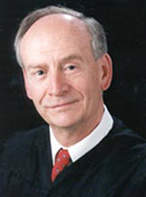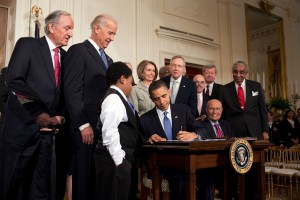In Memory of Justice Patrick Crooks
 Justice N. Patrick Crooks was the epitome of a lawyer and judge who lived to serve. In his fifty-two-year legal career, he served as a captain in the office of the Judge Advocate General at the Pentagon and then as a lawyer in private practice in Green Bay, before becoming a Brown County circuit court judge and then justice of the Wisconsin Supreme Court. In 1994 he was named Wisconsin Trial Judge of the Year by the Wisconsin Chapter of the American Board of Trial Advocates. Justice Crooks served on the trial bench for nineteen years and on the Wisconsin Supreme Court from 1996 to his passing, in chambers, last week on September 21.
Justice N. Patrick Crooks was the epitome of a lawyer and judge who lived to serve. In his fifty-two-year legal career, he served as a captain in the office of the Judge Advocate General at the Pentagon and then as a lawyer in private practice in Green Bay, before becoming a Brown County circuit court judge and then justice of the Wisconsin Supreme Court. In 1994 he was named Wisconsin Trial Judge of the Year by the Wisconsin Chapter of the American Board of Trial Advocates. Justice Crooks served on the trial bench for nineteen years and on the Wisconsin Supreme Court from 1996 to his passing, in chambers, last week on September 21.
I was honored to work for Justice Crooks as his clerk during the Wisconsin Supreme Court’s 1999-2000 term.
Justice Crooks approached each case with fresh eyes and an impartial mind. He reasoned through cases carefully and understood that he had a solemn role in deciding a case. Justice Crooks believed in the law and the justice system. Every case was fully analyzed and researched before oral argument. Opinions were to be written to guide lawyers, judges, and Wisconsin citizens. Justice Crooks was proud of his work on the trial bench and felt that his knowledge of the trial courtroom was important to his understanding of cases on appeal.


